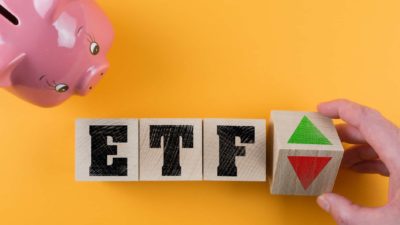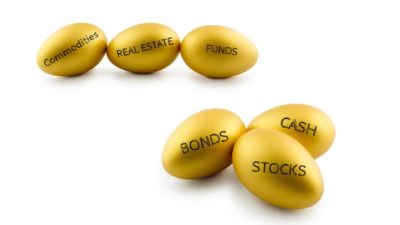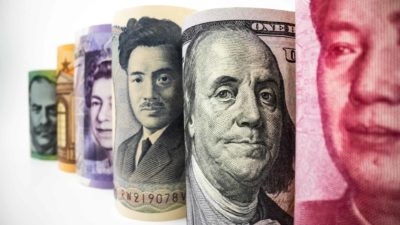There are more than 2,000 shares listed on the ASX, but these represent just a small portion of the global investment universe. Around the world there are more than 60 major stock exchanges of varying sizes. The ASX has a market capitalisation of $2.1 trillion, a relative minnow compared to the US, where the NYSE has a market capitalisation of $28.5 trillion, while the NASDAQ has a market capitalisation of $11 trillion.
European and Asian bourses also offer a wide array of investment opportunities. There are more than 3,000 companies listed on London's Stock Exchange, which has a market capitalisation of over $4 trillion.
China features 3 of the world's top 10 stock exchanges by market capitalisation; the Shanghai Stock Exchange with a market capitalisation of over $5 trillion, the Hong Kong Stock Exchange with a market capitalisation of nearly $4.5 trillion, and the Shenzen Stock Exchange with a market capitalisation of more than $3.4 trillion.
It's clear that investing only in Australia leaves out a vast pool of opportunity in the equity investment space.
International diversification reduces risk
International diversification is a method of reducing portfolio risk. Holding shares across different jurisdictions provides a hedge against the risk of country-specific events impacting the value of a portfolio. This can occur where the government of a country runs an unusually large budget deficit, or a central bank raises interest rates where other central banks don't. Equally, owning securities across jurisdictions can assist where an industry is negatively impacted in one country, but thrives in another.
Developed and emerging markets
When considering investing internationally, both developed and emerging markets should be considered. Developed market exist in countries that are advanced in terms of their economy and financial markets. Examples include the United States, Australia, Canada, and the United Kingdom. Emerging markets refer to economies of developing nations that are becoming more engaged with global markets. Examples include China, India, Mexico and Brazil.
Developed markets are generally considered less risky investments than emerging markets, but may have commensurately lower returns – the MSCI Emerging Market Index has returned 8.63% annually since 2000 while the MSCI World Index returned 5.13% annually over the same period.
Using ETFs for offshore exposure
For investors looking to gain overseas exposure, it is possible to do so without leaving the comfort of the ASX. Numerous exchange traded funds (ETFs) offer international exposure to a range of jurisdictions for the cost of a single trade. Beyond their ease of use, ETFs offer the additional benefit of providing diversification across industries and sectors to further reduce overall risk.
Global
The Vanguard MSCI Index international shares ETF (ASX: VGS) provides exposure to many of the world's largest companies listed in developed economies. The fund aims to track the return of the MSCI World ex-Australia Index (with net dividends reinvested) in Australian dollars before fees, expenses and tax. The fund provided returns of 15.30% per annum for the 3 years to 30 September.
Distributions are made quarterly and management fees are 0.18% per annum. The ETF held 1,589 shares as at 30 September with 64.6% of holdings based in the United States. Other allocations include Japan (8.4%), the United Kingdom (5.6%), France (3.9%), Canada (3.6%), Switzerland (3.2%), and Germany (2.9%).
The top 4 holdings as at 30 September were Apple, Microsoft, Alphabet, and Amazon. Other top 10 holdings included Facebook, JPMorgan, Johnson & Johnson, Nestle, Proctor & Gamble, and Visa.
United States
The Vanguard US Total Market Shares Index ETF (ASX: VTS) provides exposure to some of the world's largest companies listed in the United States. The fund aims to track the CRSP US Total Market Index and has provided returns of 15.95% per annum for the 10 years ending 30 September.
The fund is not hedged, so investors are exposed to fluctuations in the AUD/USD exchange rate. Distributions are made quarterly and management costs are 0.03% per annum. The ETF held 3,624 shares as at 30 September with a median market capitalisation of $75.5 billion. The price-to-earnings (P/E) ratio was 20.3x and the dividend yield was 1.8%.
Sector allocations were divided across technology (20.8%), financials (19.8%), consumer services (13.6%), industrials (13.5%), and healthcare (12.3%). Consumer goods, oil & gas, utilities, basic materials, and telecommunications rounded out the allocations.
Top holdings include Microsoft, Apple, Alphabet, Amazon, Facebook, and Berkshire Hathaway.
Europe
The iShares Europe ETF (ASX: IEU) provides exposure to a broad range of European companies across 16 major developed European markets. The fund tracks the performance of the S&P Europe 350 and has delivered annual returns of 7.08% over the 10 years to 30 September.
Distributions are made twice yearly and management fees are 0.60% per annum. The P/E ratio of the fund was 16.24 at 30 September and the 12 month trailing yield was 2.72%.
Across Europe, 26.68% of the funds securities were from the UK, 17.60% from France, 15.67% from Switzerland, and 13.22% from Germany. The remainder were spread across the Netherlands, Spain, Sweden, Italy, Denmark, Belgium, and other locales. Top holdings include Nestle (3.83%), Novartis (2.62%), Roche Holdings (2.42%), and HSBC Holdings (1.87%).
Asia
The Vanguard FTSE Asia ex-Japan Shares Index ETF (ASX: VAE) provides exposure to listed Asian securities excluding Australia, New Zealand, and Japan. The fund does not hedge the Australian dollar so is exposed to currency fluctuations. Returns were 10.47% per annum for the 3 years ending 30 September.
Distributions are made quarterly and management fees are 0.40% per annum. The fund held 1,208 securities as at 30 September, 36.5% of which were listed in China. The remainder were listed in Korea (13.7%), Taiwan (13.1%), India (11.3%), Hong Kong (11.3%), Singapore (4.0%), Thailand (3.7%), Malaysia (2.8%), Indonesia (2.2%) and the Philippines (1.4%).
The fund allocated 29.4% of funds to financials, with 22.1% going to technology, 11.4% to consumer services and 10% to consumer goods. Top holdings include Tencent Holdings, Alibaba, Samsung Electronics, and Taiwan Semiconductor Manufacturing.
Emerging markets
The iShares MSCI Emerging Markets ETF (ASX: IEM) provides exposure to over 800 large and mid size companies in emerging markets globally. The fund tracks the performance of the MSCI Emerging Markets Index before fees, and has returned 7.03% per annum over the 5 years to 30 September.
Distributions are made twice yearly and management fees are 0.67% per annum. The fund had a P/E ratio of 12.23 and a 12 month trailing yield of 1.80% at 30 September.
Of the fund's holdings, 31.91% were located in China, 12.05% in South Korea, 11.34% in Taiwan, 8.82% in India, 7.55% in Brazil, 4.81% in South Africa, and 3.99% in Russia. The remainder were spread across Thailand (2.85%) Saudi Arabia (2.56%), Mexico (2.49%), and other jurisdictions (11.64%).
Top holdings include Tencent Holdings (4.48%), Alibaba (4.43%), Taiwan Semiconductor Manufacturing (4.02%), and Samsung Electronics (3.64%). Other top 10 holdings include China Construction Bank (1.36%), Naspers Ltd (1.23%), and China Mobile (0.95%).
Foolish takeaway
The ASX offers a wide variety of worthy investment opportunities. For the sake of diversification, however, it is worth looking beyond Australian shores. Portfolios can rapidly be supplemented with international allocations in as little as a single trade using ETFs traded on the ASX.






